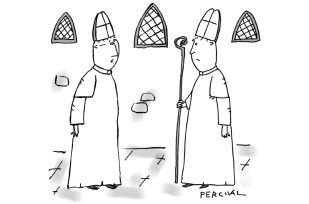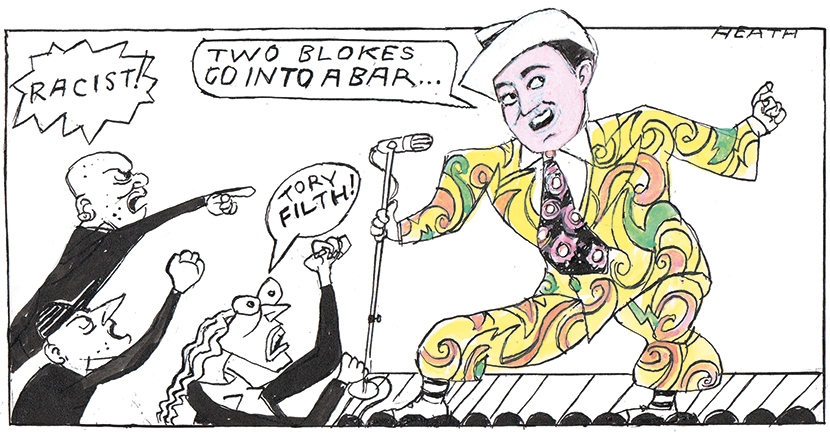From the balcony where I take my daily exercise there is a view of the commercial centre of London that is so susceptible to changes of the light you feel you are in a different city every day. When the dying sun is reflected in its glass towers, the city looks like Las Vegas burning. Under a dark sky it could be Pittsburgh. The other day was so louring that I saw Moscow. ‘I’m looking at the Kremlin,’ I shouted in to my wife. She’s been worrying about me. She thinks it’s time I relaxed the promise I made myself not to go out until the virus has gone and the world is more to my liking. ‘You’ll have a long wait,’ she says. She knows I’m being ironical. It’s other people wanting the world to be to their liking that’s not to mine. But right now it doesn’t matter. The sun is setting and I’m in Rio de Janeiro.

I’m watching television more uncritically than usual but still can’t stomach the format of Live at the Apollo. It features some clever comedians, but its artificiality, cutting to the audience to show canned hilarity — or worse, canned celebrity hilarity; or worse still, genuine hilarity — is a turn-off. It’s not the comedians’ fault that producers choose to show people helpless with laughter at a not very amusing joke, but the practice alienates you from their material. If that shower thinks they’re funny then they can’t be. We laugh too easily today. Laughter used to be like virtue. It wasn’t something we were willing to give away on a first date. Now we’re anybody’s. And yet, simultaneous with this great homogenising of laughter, comes the latest wave of offence-taking, washing away the transgressive constituent from comedy which as often as not is the best part of it.







Comments
Join the debate for just £1 a month
Be part of the conversation with other Spectator readers by getting your first three months for £3.
UNLOCK ACCESS Just £1 a monthAlready a subscriber? Log in